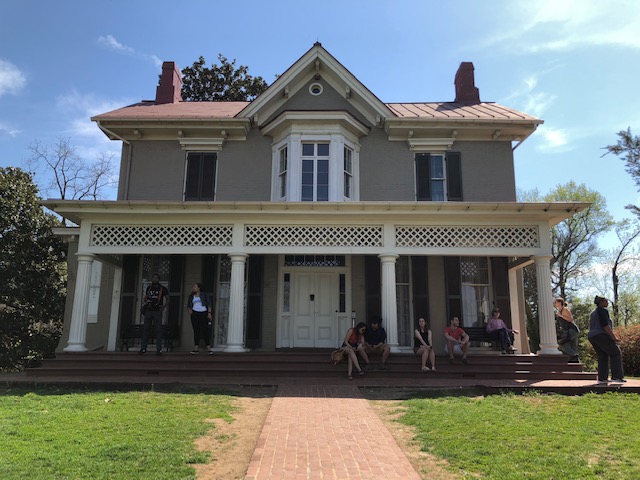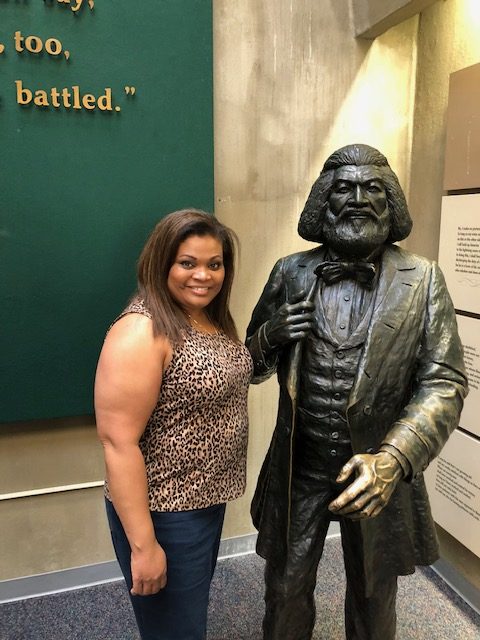Tara Buckner visited
the Washington, D.C. home of abolitionist and orator Frederick
Douglass during a business trip to the nation’s capital in 2018. She
still remembers the elegant wallpaper, the curated collection of family heirlooms,
and the china.
“I believe he
brought it back from the islands,” she said. “And, they have it all
set up in the pantry.”
Douglass moved into
the house which he called Cedar Hill in 1877.
In 1922 it was declared a National Shrine, and the federal government
recognized the hilltop home in the Anacostia neighborhood as a National
Historic Site in 1988.
During a library reading, biographer
David Blight, who won a Pulitzer for Frederick Douglass: Prophet of
Freedom, shared with the audience the historical context for Douglass’
commitment to living in Washington. Blight recalled that it was the winter of
1866 and Republicans had appointed a committee to study Reconstruction,
seeking ways to stabilize the formerly enslaved and ensure access to
opportunity.
“In the midst of
those hearings, Douglass is in Washington,” Blight said. “He didn’t
live here yet. He’s
not going to live here until 1872…although right at the end of the war he was
trying to get to Washington, he was trying to get to the center…he was trying
to get somewhere near or inside Republican politics if he could.”
According
to Blight, Douglass — an admired statesman — led a delegation of 12 other
Black leaders to the White House to see President Andrew Johnson. They did not
have an appointment but asked for one which Johnson granted. However, Johnson
was not “terribly welcoming.”
Blight
stated, “But what ensued that
day was probably one of the worst encounters between a group of Black leaders
and an American President ever, in our history.
It was a disaster one might say.”But, Douglass was not dissuaded. When Rutherford Hayes was elected, Douglass became the marshall of the District of Columbia. It marked the first time a Black man successfully received a federal appointment requiring Senate approval.
Douglass’ ability to
overcome a lifetime of discrimination is why Buckner felt compelled to visit
the home which Douglass had purchased for $6,000.
She remarked,
“His experience coming out of having been separated from his mother at a
young age, being flogged, sneaking to learn to read and write speak to the very
existence of the terrible life of slaves.”
With the growing
popularity of Juneteenth, Douglass’ famous speech in 1852
questioning the relevance of the Fourth of July to the enslaved has received
renewed interest. Yet, for Buckner, whose daughter was born on the holiday, the
Fourth now has added meaning.
“I feel as a
descendant of slaves…every day is a question so for me to have my baby on the
Fourth solidifies my story as an American in this country,” she explained.
But despite what
Douglass queried in his speech, Buckner in 2020 can claim the Fourth of July
and “rejoice” along with many others, in part, because of his
“extraordinary” accomplishments and sacrifices often first envisioned
at the quiet respite he called home.


 Black History5 years ago
Black History5 years ago
 Black History6 years ago
Black History6 years ago
 Black History4 years ago
Black History4 years ago
 Black History5 years ago
Black History5 years ago
 Black History5 years ago
Black History5 years ago
 Black History6 years ago
Black History6 years ago
 Black History9 years ago
Black History9 years ago
 Black History5 years ago
Black History5 years ago



















